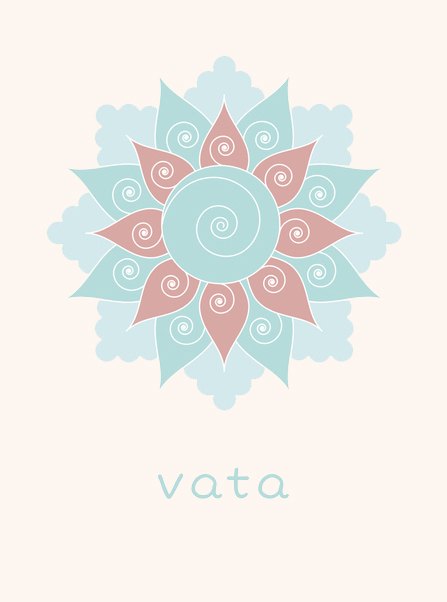What is my mind-body type? What does it mean?
The more points you have collected in one dosha, the more this type of energy predominates in you. -If you have as many or more points for one energy type compared to the other two together, then you are a mono type. -If you have two doshas of approximately the same strength, read about both. Incidentally, most people are a double dosha type, meaning that they have two doshas clearly pronounced. -If you point in all three elements almost evenly, then you are a rare tridosha type.
When looking at the test results of the dosha test you see a total and two subcategories “physical” and “mental-emotional”. Use these two to understand yourself even better. But most importantly look at the main result to see which dosha/s are dominant. Every now and then it is the case that we have a different mental-emotional expression.
Although this test does not replace a thorough constitutional analysis from an Ayurvedic doctor, you can use the results to understand yourself better and to start self-experimenting. You now have a few points of reference based to work on your habits, daily routines, diet, mindset. Depending on where you want to start to evolve. Start listening to how your system reacts to changes physically, mentally and emotionally. As a result, this test can help you to improve your perception and to strengthen your intuition, which are the best guides for long-term vibrant health and happiness. If you start noticing an imbalance at an early stage, you have the possibility to counteract for a rebalancing action.
Vata

Vata stands for movement and consists of the elements air and ether. This dosha regulates all movement processes and activities in the body. It controls the movements of the limbs and muscles as well as the processes of the internal organs, is responsible for regulating all circulatory systems and for breathing and the nervous system.
Vata can be quite variable like the weather in England. One moment it’s stormy and rainy and a couple of hours later it’s sunny before it gets bitterly cold and windy. Exactly these characteristics are found in people with a predominant Vata dosha – they change consistently.
Physical level
Vata personalities have a pronounced urge to move, they are continuously active and love all kinds of movements. Vata is the dosha of extremes that often show up in the body. They are often very large or very small, have particularly long legs or arms, or particularly short. Typical are a slender appearance and a rather delicate and sinewy stature. They tend to have fuzzy hair, thin and dry skin and often have tooth problems.
Vatas musculoskeletal system is very sensitive with a tendency to pain, especially in the lower back, joints and jaw.Furthermore they have a tendency to feel mostly cold, especially on the extremities. The sleep is usually not deep and solid, and imbalances often lead to sleep disorders. The metabolism of Vata is variable, with a tendency to constipation and dry stool, possibly alternating with diarrhea. Because of its sensitivity, Vata is prone to intolerances and allergies.
If Vata is in imbalance they can show on a physical level: twitches, tics, tremors, spasms, dry or chapped skin, constipation, gas, bloating, dry and hard stools, low body weight, dislike of cold and wind, sensitivity towards light, insomnia, joint problems, dry skin and hair, pain and stiffness in the body, nerve disorders, heart diseases.
Mental-emotional level
If Vata is in balance, it evokes creativity, flexibility and ease. Vata personalities are very diverse and full of ideas and often spiritually active. They are very curious, get enthusiastic about new projects and love changes. Vatas great strength is communication. Especially inventive thinking, dynamic writing, and engaging speech are Vatas nature. These people are very open and sociable towards others.
Vatas are quick to feel, act express and let go off emotions. Their spontaneity and playful spirit keep life fresh and lively. Another essential feature is that they maintain their concentration well for a short period of time, but have difficulty sticking to one thing over a long period of time. That’s the reason why they often start several projects at the same time and only complete a small part of them. The same can happen in their social connections where they tend to loose interest quite quickly. In imbalance, Vata tends to be nervous and restless and has a tendency to worry, fearfulness and also to mental and psychosomatic illnesses. The trigger for this can be physical or mental overload, excessive demands and a missing rhythm of life.
Other symptoms of a Vata imbalance can be: nervousness, anxiety, panic attacks, excess thinking, spacey and scattered feeling, difficulty tolerating loud noises, hypersensitive. Vata needs to learn to have and love a rhythm. That is why, they benefit highly from a lifestyle that is marked by routine, nourishment, serenity and warming foods.
You want to learn more about your dosha?
Then read my article: “What ́s your type of self-sabotage? And how to overcome it.”
